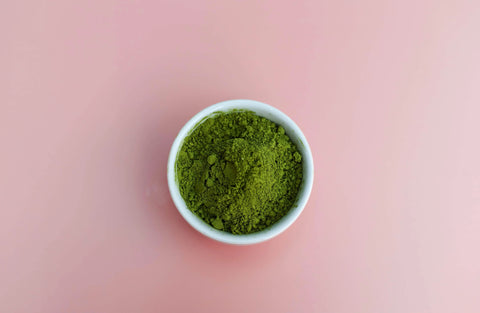Understanding the Differences Between Green Powder and Multivitamins.
While both green powder and multivitamins are supplements that can provide essential nutrients, they differ in their composition and benefits. Green powder is typically made from a blend of nutrient-dense greens, such as kale, spinach, and spirulina, while multivitamins contain a variety of vitamins and minerals in one pill. Green powder is often touted for its ability to boost energy, support immune function, and improve digestion, while multivitamins are marketed as a way to fill nutrient gaps in the diet. Understanding these differences can help you make an informed decision about which supplement is right for you.
Green Powder: Benefits and Drawbacks
Green powder supplements are often made from a combination of leafy greens, algae, and other nutrient-rich ingredients. They are typically taken as a powder mixed with water or added to smoothies. Green powder can be a convenient way to incorporate more greens into your diet, especially if you struggle to consume enough fruits and vegetables.
One of the main benefits of green powder is its high nutrient density. These supplements are often rich in vitamins, minerals, and antioxidants, which can support immune function and protect against cellular damage. Additionally, the chlorophyll found in green powders may help to detoxify the body and improve digestion.
However, there are some potential drawbacks to green powder. For one, some products may contain added sugars or artificial flavors, which can negate some of the health benefits. Additionally, the concentration of nutrients in green powder can vary depending on the source and manufacturing process. Finally, while green powder can be a helpful supplement, it is not a substitute for a healthy diet that includes a variety of fruits, vegetables, whole grains, and lean protein.
Multivitamins: Benefits and Drawbacks
Multivitamins, as the name suggests, contain a variety of vitamins and minerals in one pill. They are often marketed as a way to fill nutrient gaps in the diet and support overall health. Like green powder, multivitamins can be a convenient way to supplement your diet, especially if you have trouble getting enough nutrients from food alone.
One of the main benefits of multivitamins is that they can help to ensure that you are meeting your daily recommended intake of essential vitamins and minerals. This is particularly important for individuals who have dietary restrictions or are at risk for nutrient deficiencies. Additionally, multivitamins can support energy production, immune function, and bone health.
However, there are also some potential drawbacks to multivitamins. For one, they may contain excessive amounts of certain nutrients, which can lead to toxicity over time. Additionally, the nutrient content in multivitamins can vary widely depending on the brand and formulation. Finally, while multivitamins can be helpful, they are not a substitute for a healthy diet that includes a variety of nutrient-dense foods.
Making the Right Choice for You
So, which supplement is right for you? The answer may depend on your individual needs and goals. Green powder can be a good choice if you struggle to consume enough fruits and vegetables, or if you are looking for a convenient way to boost your nutrient intake. Multivitamins can be helpful if you have dietary restrictions, are at risk for nutrient deficiencies, or simply want to ensure that you are meeting your daily recommended intake of essential vitamins and minerals.
Ultimately, the best approach is to aim for a balanced diet that includes a variety of nutrient-dense foods. Supplements can be a helpful addition to a healthy lifestyle, but they should not be relied upon as a substitute for whole foods. If you are considering a supplement, be sure to talk to your healthcare provider to determine which one is right for you.
Absorption and bioavailability
Another factor to consider when comparing green powder and multivitamins is absorption and bioavailability. Some studies have suggested that nutrients in whole foods, such as those found in green powder, are more easily absorbed by the body than isolated vitamins and minerals found in multivitamins. This is because whole foods contain a variety of compounds that work together to enhance absorption and utilization of nutrients.
On the other hand, some studies have shown that certain forms of vitamins and minerals in multivitamins may have higher bioavailability than those found in food sources. For example, the synthetic form of vitamin E found in multivitamins has been shown to have better absorption than the natural form found in food.
Price and convenience
Finally, price and convenience are important factors to consider. Green powder can be more expensive than multivitamins, but it also provides a wider range of nutrients in a single serving. On the other hand, multivitamins are often more affordable and can be found at most drugstores and supermarkets.
Additionally, green powder can be less convenient to take than multivitamins. While both can be mixed with water or juice and consumed as a drink, green powder may require more time and effort to mix and may have a less pleasant taste.
Ultimately, the choice between green powder and multivitamins depends on individual needs and preferences. Those who prioritize whole food sources and nutrient density may prefer green powder, while those who want a quick and easy way to fill nutrient gaps may opt for multivitamins. It is always important to consult with a healthcare professional before starting any new supplement regimen.




Comments (0)
There are no comments for this article. Be the first one to leave a message!